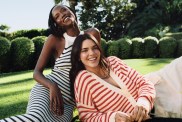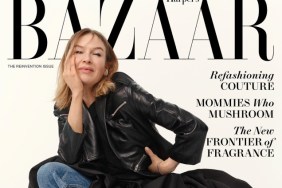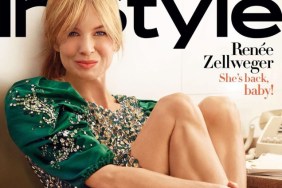Hollywood has a problem with women who dare to age. We’ve seen it (in what world is Hello, My Name is Doris, a film about a woman who sacrificed her social life to care for an ailing mother, reclaims her life in the wake of her mother’s passing and gets her heart broken because she had the audacity to set her sights on a younger coworker a comedy?). We’ve read about it (in Amanda Peet’s essay for Lenny Letter, in Tina Fey’s Bossypants). We’ve even laughed about it (Amy Schumer’s skit Last F**kable Day sums up the issue perfectly). Now, actress and social activist Rose McGowan is taking Hollywood — or more specifically, Variety film critic Owen Gleiberman — to task for its ageism and sexism.
Gleiberman recently penned a piece centered around the upcoming film Bridget Jones’s Baby, entitled “Renée Zellweger: If She No Longer Looks Like Herself Has She Become a Different Actress?” In it, Gleiberman lamented “something indescribably sad about our culture” — the pressure movie stars feel to conform to certain “standards,” which compels them to get cosmetic surgery. He used Renée Zellweger — once “beautiful in the way an ordinary person is” — and several other actresses as examples of those who have fallen prey to the bug. Of course, he failed to mention any altered male actors.
“She doesn’t look like Renée Zellweger,” Gleiberman protested. “I thought: She doesn’t look like Bridget Jones! Oddly, that made it matter more. Celebrities, like anyone else, have the right to look however they want, but the characters they play become part of us. I suddenly felt like something had been taken away.”
He went on to express his hope that the third Bridget Jones installation “turns out to be a movie that stars Renée Zellweger rather than a victim of ‘Invasion of the Face Snatchers.’ I hope it turns out to be a movie about a gloriously ordinary person rather than someone who looks like she no longer wants to be who she is.”
In a follow-up guest column for The Hollywood Reporter, Rose McGowan reprimanded Gleiberman for bullying Zellweger. “Owen Gleiberman, this is not a counterpoint. There is no counterpoint, there is no defense for the indefensible,” wrote McGowan. “Renée Zellweger is a human being, with feelings, with a life, with love and with triumphs and struggles, just like the rest of us. How dare you use her as a punching bag in your mistaken attempt to make a mark at your new job. How dare you bully a woman who has done nothing but try to entertain people like you. Her crime, according to you, is growing older in a way you don’t approve of. Who are you to approve of anything? What you are doing is vile, damaging, stupid and cruel. It also reeks of status quo white-male privilege. So assured are you in your place in the firmament that is Hollywood, you felt it was OK to do this. And your editors at Variety felt this was more than OK to run.”
McGowan, who said she herself has endured the harassment that comes hand-in-hand with being a woman in the entertainment industry, called Gleiberman an “active endorser of what is tantamount to harassment and abuse of actresses and women” and implored “any studio that Renée Zellweger has made money for, any co-star she’s supported or anyone who takes a percentage of her income” to stand behind her in calling Gleiberman out. To illustrate what “women in the public eye go through” — and the sexism inherent in Gleiberman’s article — she then rewrote the piece, substituting Renée and her fellow actresses’ names with the names of famous male actors.
Zellweger, meanwhile, has managed to somehow shut out the negativity directed towards her appearance, which peaked when she attended the Elle Women in Hollywood Awards in October 2014. A year later, the actress told Entertainment Weekly that she chose to ignore the barrage of media reports: “All that I know about is what friends and associates would send in texts and emails. They were sending support, which means that I must have needed it, and I prefer it that way. So when people come up to me to ask ‘How did that feel?’ I don’t know, and I like it like that. I don’t know. I know it sounds pretty unlikely that a person might be able to make herself, I guess, keep clear of those words or of that experience, but I have and it takes effort. But I have succeeded.”
We applaud Zellweger’s strength. And Rose McGowan — you get a standing ovation for saying what needed to be said.
[ via Vogue ]








